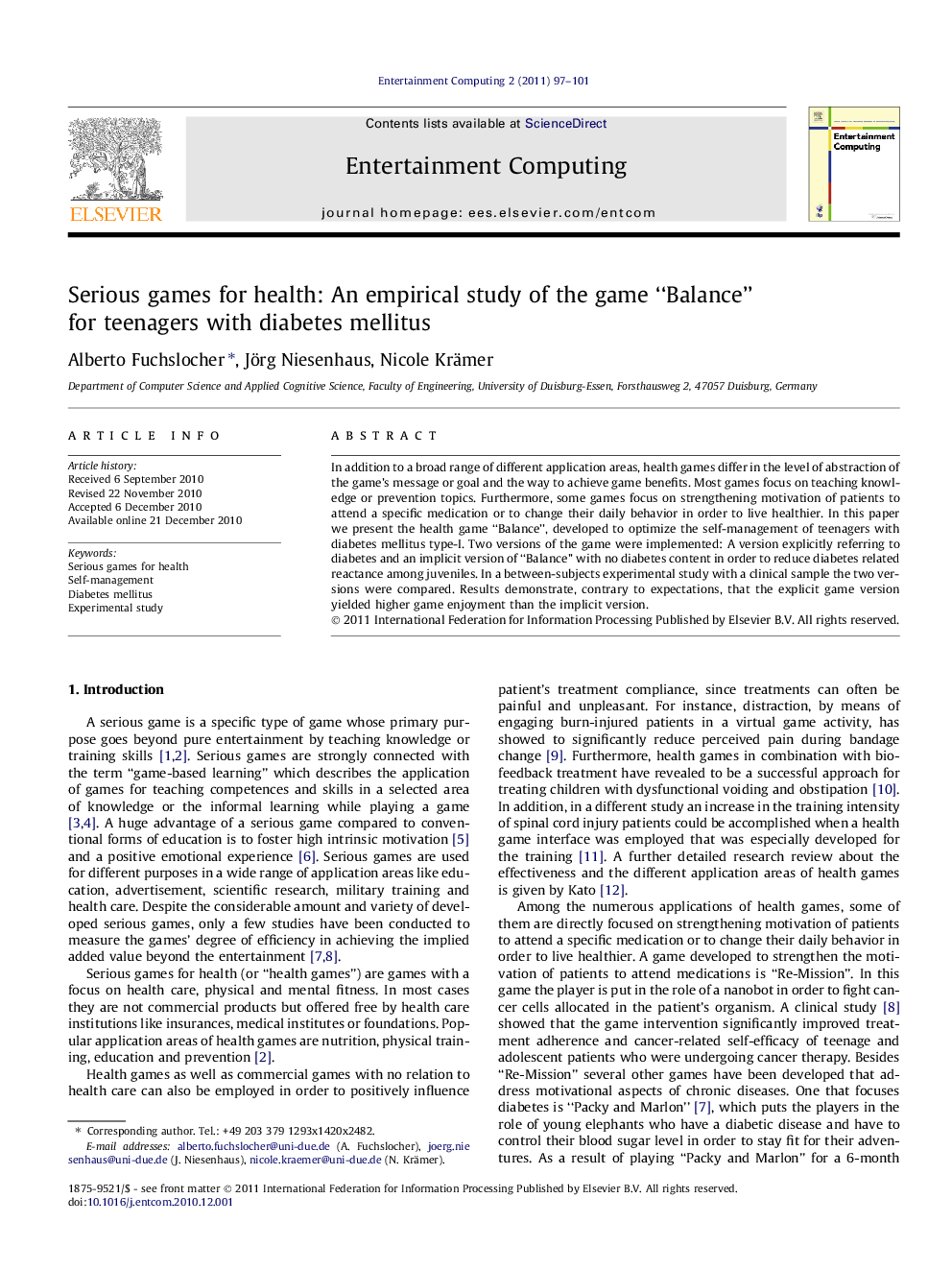| Article ID | Journal | Published Year | Pages | File Type |
|---|---|---|---|---|
| 381880 | Entertainment Computing | 2011 | 5 Pages |
In addition to a broad range of different application areas, health games differ in the level of abstraction of the game’s message or goal and the way to achieve game benefits. Most games focus on teaching knowledge or prevention topics. Furthermore, some games focus on strengthening motivation of patients to attend a specific medication or to change their daily behavior in order to live healthier. In this paper we present the health game “Balance”, developed to optimize the self-management of teenagers with diabetes mellitus type-I. Two versions of the game were implemented: A version explicitly referring to diabetes and an implicit version of “Balance” with no diabetes content in order to reduce diabetes related reactance among juveniles. In a between-subjects experimental study with a clinical sample the two versions were compared. Results demonstrate, contrary to expectations, that the explicit game version yielded higher game enjoyment than the implicit version.
Research highlights► Health game, in which diabetes self-management is incorporated in the gameplay. ► Two game versions with explicit and implicit diabetes content were developed. ► The effectiveness of both health games was tested with a clinical sample. ► Higher diabetes self-efficacy was attained when diabetes content was addressed.
